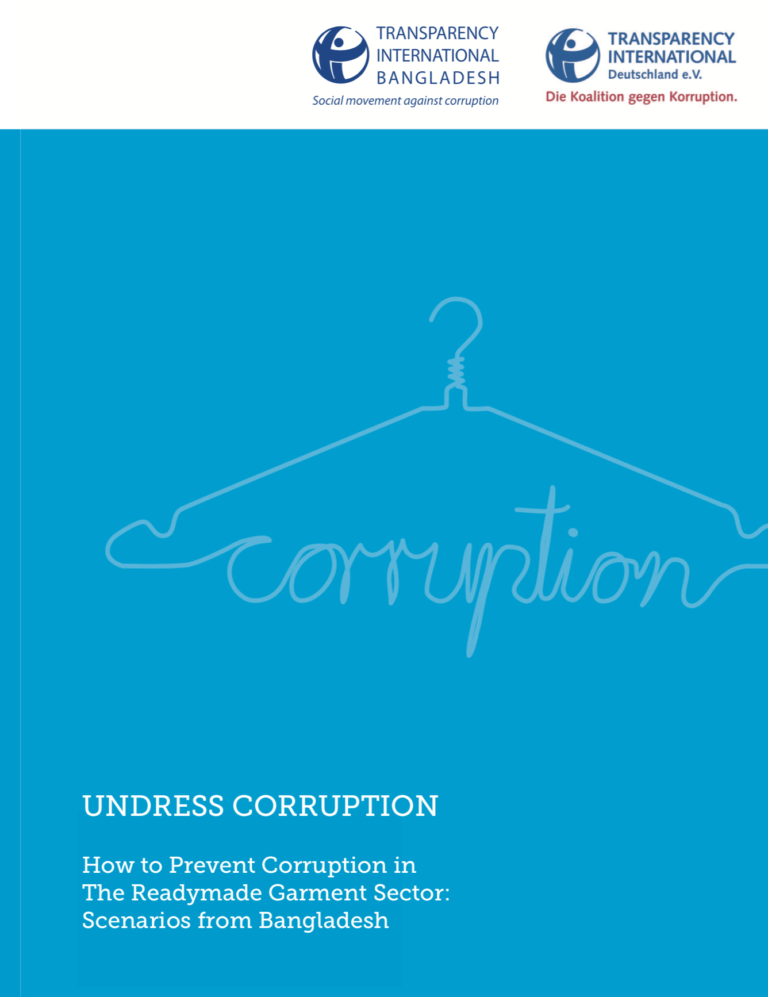The tragic event at Rana Plaza on April 24, 2013 drew the attention of the world to the conditions prevailing in the ready-made garment sector of Bangladesh. In its wake, over 150 European textile companies signed a legally binding agreement to maintain minimum standards in the Bangladesh textile industry (Accord), while 28 American and Canadian companies, including Wal-Mart and Gap, announced the Bangladesh Worker Safety Initiative (Alliance), a less stringent instrument than the Accord.
Corruption prevention and transparency are key elements of the proposed way forward. Even though most of the governance challenges have to be met in Bangladesh, Western buyers can exert substantial influence based on their contractual relationship with factory owners. For them, sustainable supply chain management and recognition of responsibility along the supply chain become more and more important. Codes of Conduct and compliance programs are valuable tools for preventing corruption. Nevertheless, solicitation of bribes and extortion remain everyday challenges.
Against this backdrop and based on a tool previously developed, ‘Resisting Extortion and Solicitation in International Transactions’, TI-Bangladesh in close cooperation with TI-Germany developed this training tool particular for the supply chain of the textile sector in Bangladesh. It is based on real-life scenarios of solicitation and extortion demands, and also includes scenarios of fraud and falsification which often are entry points of corruption. Each scenario is concluded by recommendations on how to counter such demands efficiently and ethically.
The purpose of this research is to develop a practical guide and training tool to company owners and employees, auditors, and independent agents on how to prevent and/ or respond to the solicitation of a bribe in the RMG sector.

